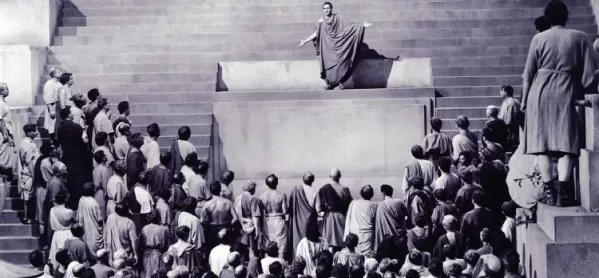You are an incoming education secretary and you are keen to make your mark. But you don’t have long - the electoral cycle was underway before you were in post and the clock is ticking. You need to move fast. What levers lie close to hand? Here’s one called “qualification reform”. Why not give it a tug and see what happens? Announce a reform today, give a year or two for the exam board people to draw up a specification and write some exams, and we can all be underway in time for you to declare that you’ve been driving up standards before the next election.
What could possibly go wrong? Quite a bit, if we are to judge by the latest twist in the emerging T-levels debacle, with the awarding bodies actually threatening the Department for Education with legal action about the process, and the DfE digging in and insisting that T levels will be served in 2020.
Behind the confusion about this latest outing of the reform bandwagon lies a deeper confusion about the best approach to qualification and curriculum reform. In essence, the ground rule is: top down bad, bottom up good.
The best qualification and curriculum reforms start at the level of those most directly affected: teachers in schools and colleges, working in tandem with exam boards; higher education and employers, shaping a vision for a new approach that is based on first-hand experience.
Beware political diktats
Contrast this with a model that begins with political diktat. The great problem here is that what sound like great ideas when voiced in the corridors of power may well not translate into workable qualifications.
It is in many ways surprising that this point needs to be made when we have a government whose thinking, in matters economic, derives from free market ideologues such as Hayek, who argued that you can’t impose central control of the economy because you lack information about local conditions. This idea fed into the policy of free schools but it is utterly contradicted by the current efforts to take central control of the curriculum and qualifications system and run it in a ruthlessly prescriptive way.
If not top-down, then, how should we go about qualification reform? We should start with a conversation, one which begins at the level of those most affected. Look at the really successful curriculum innovations and a pattern emerges: change begins from below, when a group coalesces around a new idea about the curriculum. This group will involve teachers, academics, employers; it will be open to input from students, too. Out of such a group grows a body of practitioners who share an educational vision. This group drives forward the innovation. The specification comes later, and later still, the qualification and assessment matrix.
Testing ideas in the classroom
Look at the history of successful curriculum innovations such as the International Baccalaureate, Nuffield Science or, more latterly (and here I have to acknowledge an interest), the development of the Extended Project Qualification. You will see a similar pattern of fruitful curriculum ideas leading to successful, innovative qualifications, with the whole process being driven by committed practitioners who share a concept of what they are trying to achieve and are in a position to hone their ideas through direct testing in the classroom.
Curriculum design is an empirical process. Schools and colleges are the crucibles in which reforms are tested, and begin to glow bright as a good idea creates a spark and a willing community of educators fans the flames. Because we need constant feedback from trying things out, because it is so incredibly easy to dream up bright but unworkable new schemes, when it comes to qualification and curriculum reform, bottom up beats top down every time.
John Taylor is director of learning at Cranleigh School. He is a chief examiner for the Extended Project Qualification and a member of the Chartered Institute of Educational Assessors
